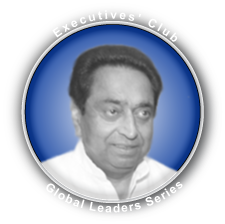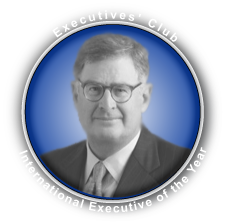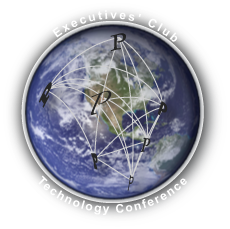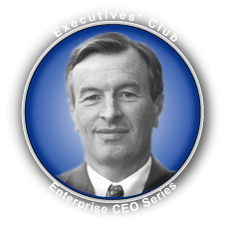Regina Herzlinger Keynotes Chicago Healthcare Executives Forum 35th Anniversary
Five-Point Prescription for U.S. Health Care—Involving Patients
 CHEF Chicago’s hospital executives listened raptly to Dr. Regina Herzlinger‘s impassioned message for transforming U.S. health care at their 35th anniversary celebration this month at the J.W. Marriott in Chicago. Dr. Herzlinger is respected and renowned for her message, so there were few surprises. The most distinctive element of her point of view is her strategy for taking a retail-led approach to transforming health care. She is very market- and consumer-focused, which is refreshing because it relies on the market and customers at least as much as the government. “Who Killed Health Care?” is her latest book, and she is a regular advisor to federal and state government officials. CHEF Chicago’s hospital executives listened raptly to Dr. Regina Herzlinger‘s impassioned message for transforming U.S. health care at their 35th anniversary celebration this month at the J.W. Marriott in Chicago. Dr. Herzlinger is respected and renowned for her message, so there were few surprises. The most distinctive element of her point of view is her strategy for taking a retail-led approach to transforming health care. She is very market- and consumer-focused, which is refreshing because it relies on the market and customers at least as much as the government. “Who Killed Health Care?” is her latest book, and she is a regular advisor to federal and state government officials.
[…]
Review and Analysis of the twenty-first century’s first decade, how Web 1.0 and Web 2.0 are disrupting executives, enterprises, society and government.. crowdsourcing, collaboration, innovation, privacy, globalization, terrorism, organizational unbundling, and how to thrive in the Knowledge Economy’s accelerating volatility, which will spell the end of many Industrial Economy enterprises. […]
New Exit Strategy for Mature Manufacturers—Acquisition by Asian Firms shows how process excellence can inject new vitality into ailing manufacturers.
 Picture this: you are the CEO of a venerable manufacturer that has been besieged by price pressure, increased imports and high capital costs. Revenue has been barely edging up, and profits have been negative three of the last five years. You have had to lay off a significant portion of manufacturing personnel, many of whom had been with you more than a generation.Your ship is still taking on water despite best efforts, and you do not know where to turn. Picture this: you are the CEO of a venerable manufacturer that has been besieged by price pressure, increased imports and high capital costs. Revenue has been barely edging up, and profits have been negative three of the last five years. You have had to lay off a significant portion of manufacturing personnel, many of whom had been with you more than a generation.Your ship is still taking on water despite best efforts, and you do not know where to turn.
This was precisely the situation of several U.S. firms that took the unusual route of selling themselves to Indian firms that turned the companies around very quickly by applying sophisticated process and management expertise. In many cases, local employment increased because the companies became much more competitive. Here are two examples:
[…]
India Trade Minister Draws Chicago-India Parallels at Executives’ Club offers coverage of Shri Kamal Nath’s Chicago presentation. Key themes: new global economic architecture presages economic realignment and thinking beyond the obvious to tap emerging opportunities.
 Illinois leaders were addressed by His Excellency Shri Kamal Nath, Minister of Commerce and Industry, Republic of India. True to form, His Excellency struck chords of transformation, partnership, common interests and harmony at the lunch held in his honor at the University Club on 19 February 2008. Attending were Chicago Mayor Richard M. Daley, Mr. Rajinder Bedi, Managing Director of the Illinois Office of Trade and Investment, The Honorable Susan Schwab, U.S. Trade Representative, Craig S. Donohue, Chief Executive Officer, CME Group and John Estey, President & Chief Executive Officer, SC Electric Company. Illinois leaders were addressed by His Excellency Shri Kamal Nath, Minister of Commerce and Industry, Republic of India. True to form, His Excellency struck chords of transformation, partnership, common interests and harmony at the lunch held in his honor at the University Club on 19 February 2008. Attending were Chicago Mayor Richard M. Daley, Mr. Rajinder Bedi, Managing Director of the Illinois Office of Trade and Investment, The Honorable Susan Schwab, U.S. Trade Representative, Craig S. Donohue, Chief Executive Officer, CME Group and John Estey, President & Chief Executive Officer, SC Electric Company.
Reading between the lines, the U.S. and India stand at a significant turning point: India’s impressive economic growth is a significant element of the ongoing redistribution of global economic power—which holds excellent opportunities for U.S. businesses and workers that are looking for it.
[…]
Disrupting the Automobile explores how several ventures are changing the rules of an intractable industry.

The automobile is a personal manifestation of the ultimate promise of the Industrial Economy—that physical power is essentially free—because it enables people to move quickly and easily. People just love cars because it is immensely satisfying to glide effortlessly (traffic notwithstanding ,^) from one place to another with a high degree of individual freedom.
However, as 2007 draws to a close, autos’ current reliance on fossil fuels makes it increasingly obvious that we need to change the rules. First, new wealth in emerging markets is dramatically increasing auto ownership and its concomitant demand for oil. Increased demand and uncertain supply will undoubtedly prove unsustainable in the medium term. Second, and even more daunting, is the carbon/climate change problem, which is far more life-changing in the long term. Petroleum and coal are the largest contributors to man-made carbon emissions.
[…]
Leadership, Trust and the Globally Integrated Enterprise reports on IBM’s CEO as he articulated a prescient vision for the enterprise—adapting to the Knowledge Economy.
 Samuel J. Palmisano, Chairman, President and Chief Executive Officer of IBM Corporation, outlined a new version of the enterprise at a lunch honoring him with the Executives’ Club of Chicago’s Thirteenth Annual International Executive of the Year Award April 12, 2007 at the Chicago Hilton. Entitled “Leadership, Trust and the Globally Integrated Enterprise,” his speech emphasized key points from his Summer 2006 article of the same name in Foreign Affairs. He was especially interesting to hear due to his experience with leading one of the world’s foremost global enterprises as well as his insight from serving global enterprises in every industry. Samuel J. Palmisano, Chairman, President and Chief Executive Officer of IBM Corporation, outlined a new version of the enterprise at a lunch honoring him with the Executives’ Club of Chicago’s Thirteenth Annual International Executive of the Year Award April 12, 2007 at the Chicago Hilton. Entitled “Leadership, Trust and the Globally Integrated Enterprise,” his speech emphasized key points from his Summer 2006 article of the same name in Foreign Affairs. He was especially interesting to hear due to his experience with leading one of the world’s foremost global enterprises as well as his insight from serving global enterprises in every industry.
Yesterday’s model for the global enterprise, the multinational corporation (MNC), looks increasingly outdated due to widespread adoption of standards-based technology, increasingly standardized work processes and a liberalizing regulatory environment. Today, knowledge-based resources are available globally, and the enterprise’s means to create value is choosing how and where to tap the resources to […]
Visions for Technology Leadership
 After Gary Forsee’s luncheon address, a diverse panel of executives took the stage to discuss global technology leadership. Hardik Bhatt, CIO of the City of Chicago, Steve Goldman, Director of Architecture, the Chicago Mercantile Exchange, Raymond Spencer, CEO of Kanbay International, and David Weick, Global CIO of McDonald’s, shared their visions for Chicago’s global role in the world. Janet Kennedy, Midwest General Manager of Microsoft, gracefully moderated the panel discussion. The Executives’ Club of Chicago’s quarterly Technology Conference took place March 8 at the Chicago Hilton. After Gary Forsee’s luncheon address, a diverse panel of executives took the stage to discuss global technology leadership. Hardik Bhatt, CIO of the City of Chicago, Steve Goldman, Director of Architecture, the Chicago Mercantile Exchange, Raymond Spencer, CEO of Kanbay International, and David Weick, Global CIO of McDonald’s, shared their visions for Chicago’s global role in the world. Janet Kennedy, Midwest General Manager of Microsoft, gracefully moderated the panel discussion. The Executives’ Club of Chicago’s quarterly Technology Conference took place March 8 at the Chicago Hilton.
“Getting global” can mean many things, and panelists hit the issue from many directions. I’ll venture that, more than anything, it means changing one’s mindset, focus and approach, all of which are difficult to measure. All panelists represented organizations that had had international operations for decades, so how is global different?
[…]
UPS: Transforming Package Delivery into a One-to-One Business summarizes the CEO’s vision for meeting customer empowerment with transformation.
 Michael L. Eskew, Chairman and CEO of UPS, outlined the package delivery giant’s vision for transforming itself into a “one-to-one” business at the Executives’ Club of Chicago’s Enterprise CEO Lunch, 15 February 2007. Before a packed house at the Chicago Hilton, he demonstrated UPS’s creative “whiteboard” marketing campaign and explained its role in communicating to customers the value of the company’s transformation. Michael L. Eskew, Chairman and CEO of UPS, outlined the package delivery giant’s vision for transforming itself into a “one-to-one” business at the Executives’ Club of Chicago’s Enterprise CEO Lunch, 15 February 2007. Before a packed house at the Chicago Hilton, he demonstrated UPS’s creative “whiteboard” marketing campaign and explained its role in communicating to customers the value of the company’s transformation.
The importance of UPS’s vision extends beyond UPS stakeholders because it reflects a shift in emphasis away from industrial efficiency to knowledge-based innovation. Make no mistake, efficiency is mission-critical to every business, but fewer companies can differentiate based on efficiency. To its considerable credit, UPS sees the shift and is striving to empower customers with information as well as delivery services.
A History of Transformation
Mr. Eskew set the context by emphasizing that UPS has a history of transforming itself to meet technology and market challenges:
Founder Jim Casey began the company as bicycle messenger service in 1907, but emerging technology, […]
Retrofitting GM, the Quintessential Industrial Economy Enterprise reflects Knowledge Economy disruption as production-focused enterprises languish as customers continue to forsake them.
 As readers of these pages know well, I estimate that one of the most poignant changes that faces Industrial Economy enterprises is shifting their primary focus from production and operations to the customer. The Industrial Economy mechanized work and production, and by any measure it created unprecedented wealth by drastically lowering per-unit costs of any kind of product you can name, bringing more products within the means of more people. This worked extremely well while demand exceeded supply: customers were excited to have their first car/house/television, and they were happy with what producers brought to market. As readers of these pages know well, I estimate that one of the most poignant changes that faces Industrial Economy enterprises is shifting their primary focus from production and operations to the customer. The Industrial Economy mechanized work and production, and by any measure it created unprecedented wealth by drastically lowering per-unit costs of any kind of product you can name, bringing more products within the means of more people. This worked extremely well while demand exceeded supply: customers were excited to have their first car/house/television, and they were happy with what producers brought to market.
However, Industrial Economy CSFs (critical success factors) look extremely stale in the Knowledge Economy (also see Transformation: From Self-contained Company to Networked Global Organization). The e-business revolution has vastly enhanced communications, decreased cycle times and moved the mass customization model closer to reality.
Big Dealer to Detroit: Fix How You Make Cars (The Wall Street Journal, 9 February 2007) spells out the problem extremely well:
“One of the […]
 What does the Knowledge Economy Portend for the Industrial Economy organization? What does the Knowledge Economy Portend for the Industrial Economy organization?
Today, most of the world’s global commercial and governmental organizations increasingly find themselves confronted by the Knowledge Economy’s new success factors, which are often contrary to the Industrial Economy’s. Compounding the challenge, past competitors have had similar structures and limitations to incumbents’, which gave everyone more time to adapt to change; however, new Knowledge Economy competitors often do not have the same structures and limitations. Technology and globalization are changing the rules of engagement.
These developments leave industrial companies in an awkward situation. Now, they need to excel at collaborative innovation—historically a weak point—to capture and hold customers’ attention. In the Knowledge Economy, innovation will replace efficiency as the primary driver of value creation. Competitors that can engage rapidly shifting customer desires will dominate.
To succeed, incumbents must quickly become more adaptive and collaborative with external partners and customers. Moreover, they must transform themselves while they continue to operate at increasing levels of performance.
Industrial Economy Success Factors Knowledge Economy Success Factors Deliver vast quantity and low prices to relatively few broad […]
|
|
 CHEF Chicago’s hospital executives listened raptly to Dr. Regina Herzlinger‘s impassioned message for transforming U.S. health care at their 35th anniversary celebration this month at the J.W. Marriott in Chicago. Dr. Herzlinger is respected and renowned for her message, so there were few surprises. The most distinctive element of her point of view is her strategy for taking a retail-led approach to transforming health care. She is very market- and consumer-focused, which is refreshing because it relies on the market and customers at least as much as the government. “Who Killed Health Care?” is her latest book, and she is a regular advisor to federal and state government officials.
CHEF Chicago’s hospital executives listened raptly to Dr. Regina Herzlinger‘s impassioned message for transforming U.S. health care at their 35th anniversary celebration this month at the J.W. Marriott in Chicago. Dr. Herzlinger is respected and renowned for her message, so there were few surprises. The most distinctive element of her point of view is her strategy for taking a retail-led approach to transforming health care. She is very market- and consumer-focused, which is refreshing because it relies on the market and customers at least as much as the government. “Who Killed Health Care?” is her latest book, and she is a regular advisor to federal and state government officials.
 Picture this: you are the CEO of a venerable manufacturer that has been besieged by price pressure, increased imports and high capital costs. Revenue has been barely edging up, and profits have been negative three of the last five years. You have had to lay off a significant portion of manufacturing personnel, many of whom had been with you more than a generation.Your ship is still taking on water despite best efforts, and you do not know where to turn.
Picture this: you are the CEO of a venerable manufacturer that has been besieged by price pressure, increased imports and high capital costs. Revenue has been barely edging up, and profits have been negative three of the last five years. You have had to lay off a significant portion of manufacturing personnel, many of whom had been with you more than a generation.Your ship is still taking on water despite best efforts, and you do not know where to turn. Illinois leaders were addressed by His Excellency Shri Kamal Nath, Minister of Commerce and Industry, Republic of India. True to form, His Excellency struck chords of transformation, partnership, common interests and harmony at the lunch held in his honor at the University Club on 19 February 2008. Attending were Chicago Mayor Richard M. Daley, Mr. Rajinder Bedi, Managing Director of the Illinois Office of Trade and Investment, The Honorable Susan Schwab, U.S. Trade Representative, Craig S. Donohue, Chief Executive Officer, CME Group and John Estey, President & Chief Executive Officer, SC Electric Company.
Illinois leaders were addressed by His Excellency Shri Kamal Nath, Minister of Commerce and Industry, Republic of India. True to form, His Excellency struck chords of transformation, partnership, common interests and harmony at the lunch held in his honor at the University Club on 19 February 2008. Attending were Chicago Mayor Richard M. Daley, Mr. Rajinder Bedi, Managing Director of the Illinois Office of Trade and Investment, The Honorable Susan Schwab, U.S. Trade Representative, Craig S. Donohue, Chief Executive Officer, CME Group and John Estey, President & Chief Executive Officer, SC Electric Company. Samuel J. Palmisano, Chairman, President and Chief Executive Officer of IBM Corporation, outlined a new version of the enterprise at a lunch honoring him with the Executives’ Club of Chicago’s Thirteenth Annual International Executive of the Year Award April 12, 2007 at the Chicago Hilton. Entitled “Leadership, Trust and the Globally Integrated Enterprise,” his speech emphasized key points from his Summer 2006 article of the same name in Foreign Affairs. He was especially interesting to hear due to his experience with leading one of the world’s foremost global enterprises as well as his insight from serving global enterprises in every industry.
Samuel J. Palmisano, Chairman, President and Chief Executive Officer of IBM Corporation, outlined a new version of the enterprise at a lunch honoring him with the Executives’ Club of Chicago’s Thirteenth Annual International Executive of the Year Award April 12, 2007 at the Chicago Hilton. Entitled “Leadership, Trust and the Globally Integrated Enterprise,” his speech emphasized key points from his Summer 2006 article of the same name in Foreign Affairs. He was especially interesting to hear due to his experience with leading one of the world’s foremost global enterprises as well as his insight from serving global enterprises in every industry. After Gary Forsee’s luncheon address, a diverse panel of executives took the stage to discuss global technology leadership. Hardik Bhatt, CIO of the City of Chicago, Steve Goldman, Director of Architecture, the Chicago Mercantile Exchange, Raymond Spencer, CEO of Kanbay International, and David Weick, Global CIO of McDonald’s, shared their visions for Chicago’s global role in the world. Janet Kennedy, Midwest General Manager of Microsoft, gracefully moderated the panel discussion. The Executives’ Club of Chicago’s quarterly Technology Conference took place March 8 at the Chicago Hilton.
After Gary Forsee’s luncheon address, a diverse panel of executives took the stage to discuss global technology leadership. Hardik Bhatt, CIO of the City of Chicago, Steve Goldman, Director of Architecture, the Chicago Mercantile Exchange, Raymond Spencer, CEO of Kanbay International, and David Weick, Global CIO of McDonald’s, shared their visions for Chicago’s global role in the world. Janet Kennedy, Midwest General Manager of Microsoft, gracefully moderated the panel discussion. The Executives’ Club of Chicago’s quarterly Technology Conference took place March 8 at the Chicago Hilton. Michael L. Eskew, Chairman and CEO of UPS, outlined the package delivery giant’s vision for transforming itself into a “one-to-one” business at the Executives’ Club of Chicago’s Enterprise CEO Lunch, 15 February 2007. Before a packed house at the Chicago Hilton, he demonstrated UPS’s creative “whiteboard” marketing campaign and explained its role in communicating to customers the value of the company’s transformation.
Michael L. Eskew, Chairman and CEO of UPS, outlined the package delivery giant’s vision for transforming itself into a “one-to-one” business at the Executives’ Club of Chicago’s Enterprise CEO Lunch, 15 February 2007. Before a packed house at the Chicago Hilton, he demonstrated UPS’s creative “whiteboard” marketing campaign and explained its role in communicating to customers the value of the company’s transformation. As readers of these pages know well, I estimate that one of the most poignant changes that faces Industrial Economy enterprises is shifting their primary focus from production and operations to the customer. The Industrial Economy mechanized work and production, and by any measure it created unprecedented wealth by drastically lowering per-unit costs of any kind of product you can name, bringing more products within the means of more people. This worked extremely well while demand exceeded supply: customers were excited to have their first car/house/television, and they were happy with what producers brought to market.
As readers of these pages know well, I estimate that one of the most poignant changes that faces Industrial Economy enterprises is shifting their primary focus from production and operations to the customer. The Industrial Economy mechanized work and production, and by any measure it created unprecedented wealth by drastically lowering per-unit costs of any kind of product you can name, bringing more products within the means of more people. This worked extremely well while demand exceeded supply: customers were excited to have their first car/house/television, and they were happy with what producers brought to market. What does the Knowledge Economy Portend for the Industrial Economy organization?
What does the Knowledge Economy Portend for the Industrial Economy organization?